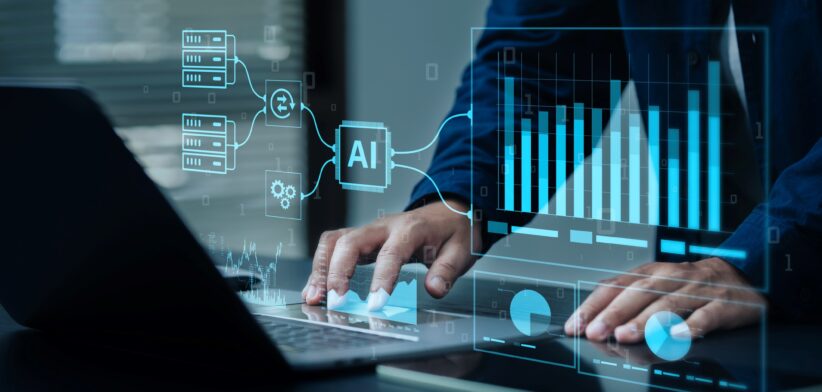While many Australian businesses are just coming to terms with Industry 4.0, or the Information Age, they are now being urged to embrace the next iteration of Industrial evolution, the Intelligence Age.
New PwC research shows that trillions of dollars is up for grabs and up to 15 percent of global GDP at risk if the opportunities presented by the new era of disruption, driven by the responsible use of Artificial Intelligence (AI) are not seized.
Brisbane-based PwC Partner Simon Herrmann, the company’s Business Model Reinvention Lead, said the global industrial reconfiguration was gathering pace, driven by megatrends including advanced technologies, climate change and fracturing geopolitics.
Mr Herrmann said the successful businesses of the future would not be defined by how well they competed within the boundaries of their industry, but by how they transcended industry lines to meet evolving human needs, such as “how we move, make and build things”; “how we feed and care for ourselves”; and “how we fuel society”.
“This complete structural transformation of the global economy will create both exciting growth opportunities, and significant uncertainties, for business leaders.
“That’s because the pace and trajectory of this transformation will be shaped by how decisively businesses worldwide embrace AI and accelerate decarbonisation.”
PwC Queensland Managing Partner Samantha Vidler said Queensland was uniquely positioned to leverage the transformative potential of the Intelligence Age.
“As a region known for its innovation and entrepreneurial spirit, we have the opportunity to lead by example in adopting responsible AI technologies, not just to drive productivity, but to address the pressing human needs specific to our communities, such as sustainable agriculture, evolving our resources industry, renewable energy, and advanced healthcare solutions,” Ms Vidler said.
“By fostering collaboration and building trust, we can unlock immense value and ensure that Queensland remains at the forefront of global economic transformation.”
Mr Herrmann said PwC’s economic analysis showed that rapid and responsible AI deployment could supercharge productivity, boosting global GDP by nearly 15 percent more than projected over the next decade.
He said this would offset the economic challenges associated with climate change.
“But if progress stalls, the world could face a productivity slowdown or even a net economic contraction, especially in resource-reliant countries, like Australia.
“Can we, a country whose wealth was built on extraction, exporting, and traditional finance, shift fast enough to compete in an economy where value is increasingly intangible?
“Or will we be outpaced by countries that turn sustainability and digital intelligence into the next great industrial engines, effectively ushering in a new Intelligence Age?”
Mr Herrmann said the “great reconfiguration” was a fundamental transformation of the global industrial system into broader, deeper value pools.
“In this new world order, innovative technology combinations give rise to products and services centred on emerging human needs.
“In other words, businesses are no longer defined by what they produce, but by the problems they solve for humanity.”
He said the opportunity was immense with the company’s Value in Motion research, revealing more than A$7.7 trillion in global value could be unlocked in 2025 alone as megatrends force global economies to shift from legacy industry models to fluid, interconnected value chains organised around human needs.
“More than 40 percent of that value could be generated in the Asia Pacific region.”
Mr Herrmann said, however, the upside was no guaranteed, as it hinged on responsible AI deployment, clear governance and public and organisational trust.
He said PwC analysis found that if there was lower trust and co-operation, the incremental boost to the economy from AI could be more muted to between 1 and 8 percent.
PwC Australia Chief Economist Amy Lomas said the research quantified the opportunity for Australian businesses and the need for a rapid uptake of responsible, trusted AI.
“Getting the balance right between going fast and building trust in these new platforms will be critical. It’s less about the technology itself and more about how individual organisations engage with it and embed it. We will only reap the rewards if we have the scaffolding in place to trust the technology on a global scale,” Ms Lomas said.
“Australia has more to gain than most – we have the combined pressures of an especially tight labour market; a dramatic shift in our working age population; vulnerability to the physical climate risks of fire, flood, storms and heat; and significant growth in human services demand – primarily aged, health and disabilities care.
“Collectively these forces mean boosting growth and unleashing productivity is a critical part of the equation. That means being a leader in our approach to AI, not a not a laggard,” she said.








